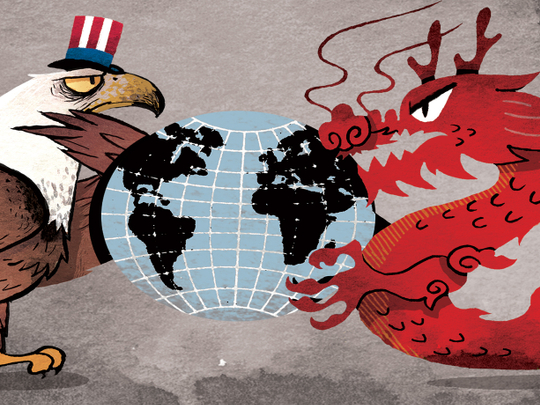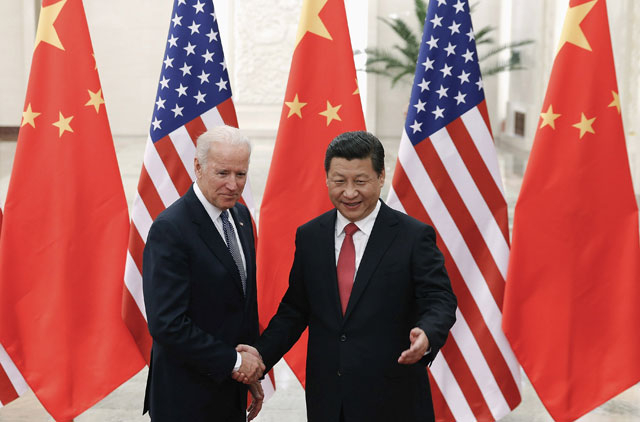
With 30 per cent of global manufacturing, China’s economy is poised to become the world’s biggest in a decade. In consonance with its economic rise, China is naturally consolidating its position in Asia and beyond.
“The China Model” is catching the world’s imagination. There is a growing dependency of developing nations and some European countries, who want to piggyback China’s economic success to accelerate growth in their economies.
Through its Belt and Road Initiative (BRI), Beijing has provided a vision and means of rapid infrastructure development and shared prosperity to hundreds of countries. Consequently, China has created an interdependency that benefits the two sides. Assisting capital deficient states expands its influence.
America on the other hand, because of paucity of growth policies and deficits is losing ground when it comes to support the developmental aspirations of less privileged countries. Washington is worried that China is using its economic prowess to export its model.

US has declared China (and Russia) as ‘strategic competitors’-- in what many analysts call the new ‘Cold War.’ Some in the West blame China for a dip in its relations with Australia, Britain, Japan, India and other countries in Europe. But tensions in China’s relations with most of these countries are a direct result of matters related to US-China shadow boxing.
Asia, especially in the East Asian region, finds it too costly to choose between the two powers. Singapore’s Prime Minister Lee Hsien Loong has cautioned that the troubled US-Chinese relationship raises profound questions about Asia’s future and the shape of the emerging international order. America, he wrote, should understand that “China is a reality on the doorstep. Asian countries do not want to be forced to choose between the two.”
No country is expected to tolerate a year-long externally instigated protests as China patiently did in Hong Kong. And when China has stamped its authority over restive territory, the West starts to complain.
Regional hotspots
On the Senkaku Islands/Diaoyu Islands (named differently by Japan and China) disputed among Japan, China and Taiwan, the Japanese government nationalised its control over the islands by purchasing them from the private owners. China, which tolerated the previous status, declared it will not accept violation of its sovereignty.
With American forces based in Japan, Republic of Korea, Guam and (till recently Afghanistan) base facilities in the Philippines and Singapore, it is China that feels vulnerable with American military presence so close it its mainland. As the largest trading nation in the world, China cannot afford another power that control much of its sea lanes.
The US under Trump launched trade war imposing duties over Chinese imports and banning Chinese companies and universities buying high-tech products from the US. Meanwhile Huawei’s sales climbed from $123 billion in 2019 to $136.7 in 2020.
Notably the American policy appears to seek exclusivity but it should not put itself into a position from where it cannot proceed.
Sajjad Ashraf served as an adjunct professor at the Lee Kuan Yew School of Public Policy, National University of Singapore from 2009 to 2017. He was a member of Pakistan Foreign Service from 1973 to 2008 and served as Pakistan’s ambassador to several countries.








